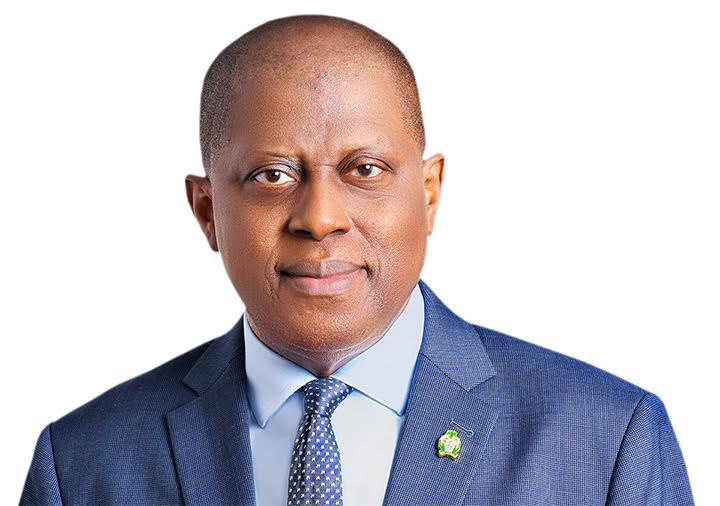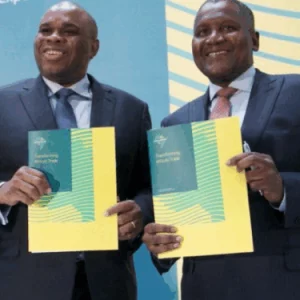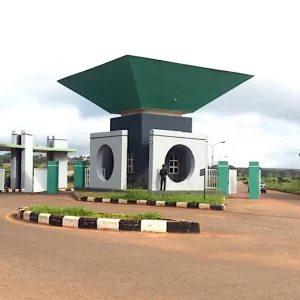ACF’s Mr Dalhatu alleged that since 1999, the northern region has been neglected by the federal government, especially in its budget allocations and infrastructural development, citing employment and relocation of office by the Central Bank of Nigeria.
The Central Bank of Nigeria (CBN) has addressed the concerns raised by the Arewa Consultative Forum (ACF) over the appointment of directors and relocation of some departments of the apex bank from Abuja to Lagos.
The forum’s chairperson, Bashir Dalhatu, alleged that the northern region significantly contributed to the victory of President Tinubu in the 2023 elections, but has not adequately been compensated for its support.
Mr Dalhatuu said the federal government took some “decisions that are painful to the northerners”.

He alleged that since 1999, the region has been neglected by the federal government, especially in budget allocations and infrastructural development, with the worst of which he said is the northeast region, with poor road networks among other problems.
On the CBN, Mr Dalhatu said, “We are not happy about government officials who make decisions that are painful to us.
“We want to know the reasons for the relocation exercise? Why are the voluntary retirements, why the recent employment of 16 directors, of which only four are from northern Nigeria, by the Central Bank of Nigeria?”
Mr Dalhatu said this on Tuesday at an Interactive Session on Government-Citizens Engagement at the Arewa House, Kaduna.
The session, organised by the Ahmadu Bello Memorial Foundation, was to assess President Bola Tinubu’s administration’s performance in the northern region in the first half of the administration’s term.
Reacting to Mr Dalhatu on Wednesday, the Deputy Governor of the CBN, Economic Policy Directorate, Mohammed Abdullahi, said many Nigerians like Mr Dalhatu misconstrued the happenings in the central bank, which led to the allegations.
He said some of the departments were relocated to Lagos to decongest the Abuja head office following the mass employment of staff by the previous administration.
“When we arrived at the central bank, one of the first documents that we looked at was a document that had been submitted countless times to the management by the facility manager of the bank, saying that between 2019 and 2023, the central bank had hired 4,000 people.
There was a workforce of 5,000 in 2019. By 2023, it was a workforce of over 9,000. Now, what that meant was that we had offices that were fuller than this hall (Arewa House Hall) that we were standing in,” he said.
“Conference rooms had been turned into offices, and staff had to retain seats because there was virtually no space. Our insurance providers could not insure the building because key exits and entries for fire had been blocked by desks and chairs, and people had no work to do.
“We did an assessment of the organisation, and we have a huge office in Lagos and different parts in Nigeria, we decided on what we need in the Abuja office and what is required in the Lagos office and the rest of the country and that is how we did the man power planning and redistribute staffs” Mr Abdullahi, who is also from Kaduna, stated
He said the outcry is from people who don’t want to go to Lagos, while the apex bank believed that the staff redistribution would help them grow their careers in the banking sector.
“The programme has no any agenda whatsoever against any region”, he said.
On voluntary retirements, Mr Abdullahi said the CBN has practised early exit in the last 20 years, wherever the management deems that the top is heavy.
“When we came, we had a numbers of town hall meeting with staffs, the junior staffs suggested for early exit programme for staff, they came over with a proposal and the early exit was offered for only the people who want to take it. It was not done to a particular target at any people. It was an opportunity for people who wanted to do other things in life.
“There were also misconceptions in the news regarding the 16 directors that are from particular parts of the country. That is very far from the truth. A very competitive process was put in after several processes of interviews and examinations, and the top emerged.
“Some of the best directors are from this region, (the northern region), I don’t want to mention their names so that I can not put them on the spot, but they are very, very good and they are much in numbers from what has been put out in the news”, Mr Abdullahi said.
Stay ahead with the latest updates!
Join The Podium Media on WhatsApp for real-time news alerts, breaking stories, and exclusive content delivered straight to your phone. Don’t miss a headline — subscribe now!
Chat with Us on WhatsApp







